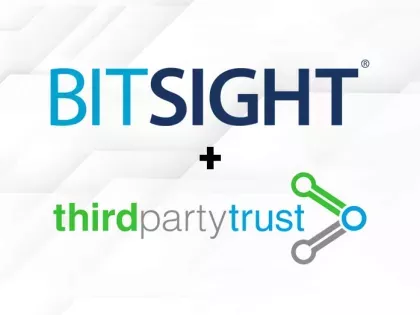Read about the latest cybersecurity news and get advice on third-party vendor risk management, reporting cybersecurity to the Board, managing cyber risks, benchmarking security performance, and more.
Insights blog.

Critical Vulnerabilities Discovered in Automated Tank Gauge Systems
Bitsight TRACE explores several critical vulnerabilities discovered in ATG systems and their inherent risk when exposed to the Internet.

The addition of ThirdPartyTrust expands the Bitsight TPRM offering to deliver an end-to-end third-party risk management solution for global vendor risk management teams.

What is a board cybersecurity committee? Learn why it’s more critical than ever and how your organization can establish one.

Bitsight has discovered six severe vulnerabilities in a popular vehicle GPS tracker (MiCODUS MV720) potentially allowing hackers to track individuals without their knowledge, remotely disable fleets of corporate supply and emergency vehicles, abruptly stop civilian vehicles on dangerous highways, and more.

Investors are worried about cybersecurity—and for good reason. Yet despite growing concerns and the criticality of the issue, the dialogue between companies and investors need significant improvement. Here's why.

New features in Bitsight's Security Performance Management (SPM) solution help you quickly get better insights of your attack surface so you reduce the risk of data breaches, ransomware, and cyber attacks.

It’s hard to believe, but Bitsight is celebrating our 10 year anniversary this week! I co-founded Bitsight in 2011 with my friend and grad school classmate, Nagarjuna Venna. When I think back at our original idea of creating a global cybersecurity ratings system, I’m surprised that our original thesis and vision still holds true today. It’s been an incredible journey filled with twists and turns, and I wanted to share some thoughts about where we’ve been and where we’re headed in the next decade.

Check out this Q&A with a US-based member of Bitsight's Customer Success team to learn about her role as an Bitsight Advisor & Customer Success Manager, her experience, and more.

Check out this Q&A with a London-based member of Bitsight's Customer Success team to learn about her role as an Customer Success Manager, her experience, and more.

Check out this Q&A with a Lisbon-based member of Bitsight's Customer Success team to learn about her role as an EMEA Customer Success Manager, her experience, and more.

Check out this Q&A with a US-based member of Bitsight's Customer Success team to learn about her role as a Customer Success Manager, her experience, and more.

Check out this Q&A with a Lisbon-based member of Bitsight's Customer Success team to learn about his role as a Senior Customer Success Manager, his experience, and more.

Since 2017 Bitsight has been working together with Microsoft’s Digital Crimes Unit (DCU) to understand the inner workings of the Necurs malware, its botnets and command and control infrastructure in order to take disruptive action against the threat, including reverse engineering, malware analysis, modules updates, infection telemetry and command and control updates and forensic analysis. This week, an action took place to disrupt all Necurs botnets, followed by mitigation and eradication actions.

2020 is not only the beginning of a new year, but the start of a new decade, and with it comes the dawn of a new era for the digital world. We’re now in the midst of the once far-off, “futuristic” time periods old books and movies used to dream about. But does your security performance management strategy match the functionality of today’s technology?

In recognition of our groundbreaking innovation and true differentiation in serving the IT channel, we’re proud to announce that the Bitsight Peer Analytics solution has been selected as a winner in the CRN 2019 Tech Innovator Awards.

A few weeks ago Google confirmed that there was malware pre-installed on a number of Android devices due to a supply-chain attack. The latest installment was discovered by security researchers from Dr.Web who have been investigating this situation for several years as it was already theorized by security researchers back in July 2017 that these infections originated as part of a supply-chain attack. In this instance, these devices were pre-installed with Triada, a form of Android malware that has been studied and reported on by Kaspersky and most recently Google in its attempt to surface this critical information to users and the wider community.